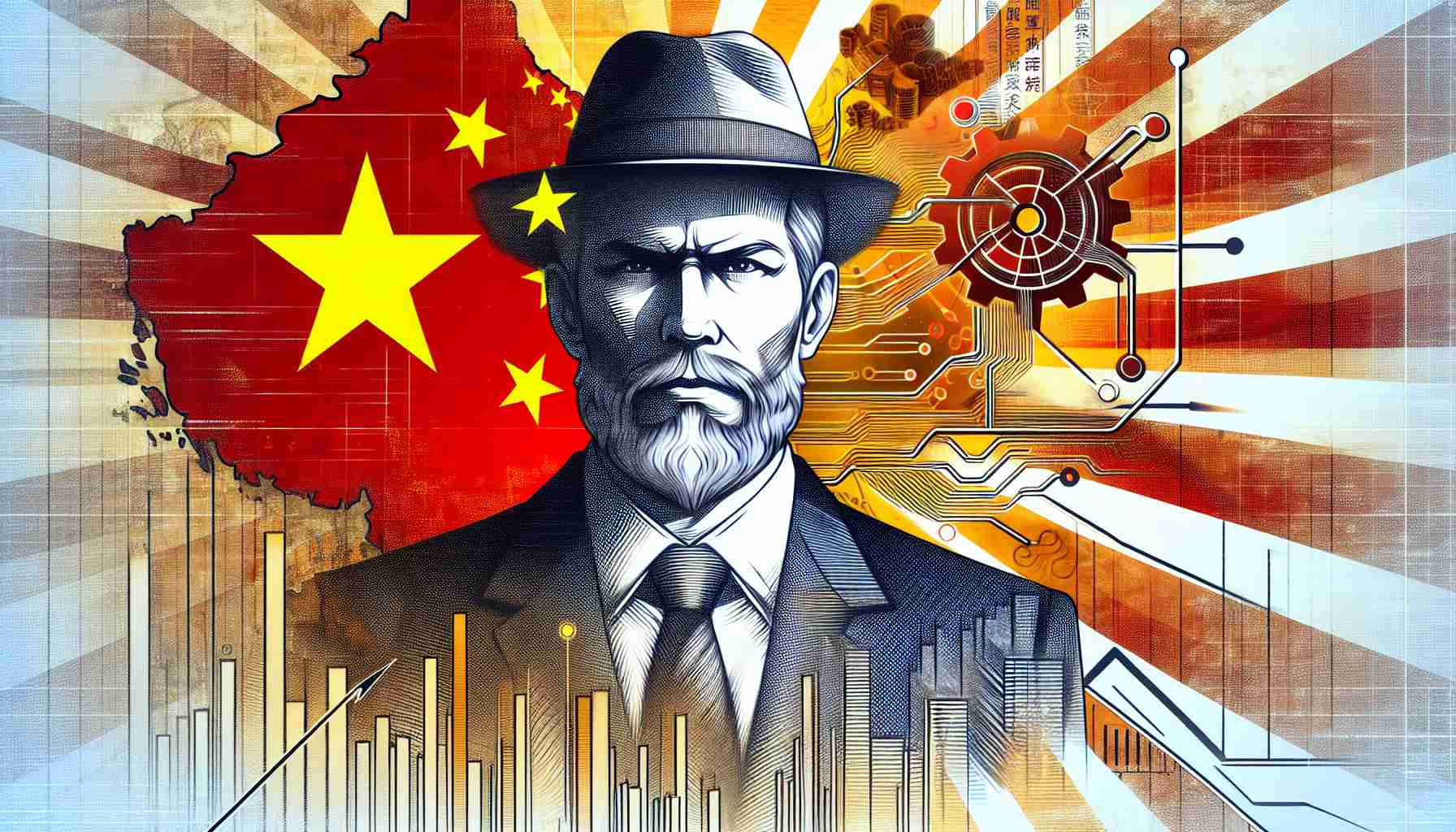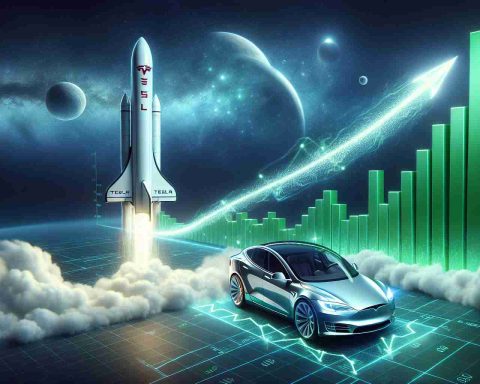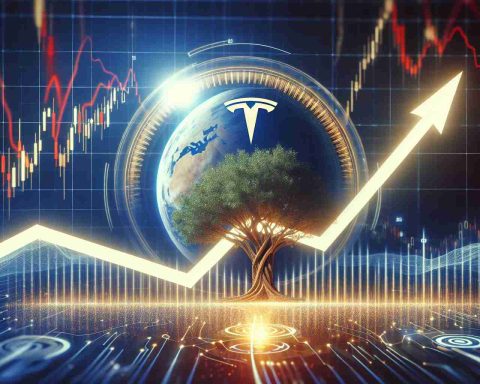A potential deal and a looming ban shake the tech world!
This week, headlines suggested that the Chinese government is eyeing Elon Musk as a possible buyer for TikTok, right before its impending ban in the U.S. However, TikTok has dismissed these claims as mere fabrications. Despite this, TikTok’s CEO Shou Chew is set to join Musk and prominent figures at Trump’s upcoming inauguration, marking a historic attendance by a Chinese leader, Vice President Han Zheng.
Musk’s relationship with China has been complex and has evolved significantly over time. Initially skeptical, his stance softened dramatically as he engaged with Chinese authorities to establish a Tesla manufacturing facility in Shanghai. Insights from Musk’s social media activity reveal an admiration for China’s infrastructure advancements and green energy initiatives. He has often celebrated China’s achievements while typically avoiding direct criticism of its political system.
Despite rare instances of criticism regarding trade disparities and regulatory challenges, Musk has generally maintained a supportive attitude towards Chinese policies. His diplomatic efforts were epitomized by securing a deal for Tesla’s Shanghai plant, which has since become crucial to the company’s success, significantly boosting sales and transforming Tesla into a leading automaker in the region.
As Musk continues to navigate his influence in U.S. politics and relations with China, observers remain keenly aware of how this dynamic will unfold in the coming years.
The Implications of Tech Influence on Global Dynamics
In an era marked by rapid technological advancement, the intersection of politics and major tech figures such as Elon Musk has profound ramifications for both society and the global economy. As Musk moves to solidify his presence in China while maintaining influence in American politics, his engagements signify a broader trend of interconnected economies where the tech sector drives international relations.
The ability of a single individual to sway corporate decisions or policies brings both opportunities and challenges. The blending of corporate ambition with national interests can lead to an environment ripe for innovation; however, it also raises concerns over data privacy and regulatory compliance. As tech giants increasingly hold sway over global communication, the need for robust governance frameworks becomes critical.
Moreover, the potential environmental impacts cannot be overstated. Musk’s advocacy for green energy in China not only aids in China’s massive push for renewable energy but also highlights the interdependence of global efforts to combat climate change. Should Tesla’s practices influence manufacturing processes worldwide, it could pave the way for more sustainable industrial standards.
Ultimately, the unfolding narrative between Musk, TikTok, and global powers will shape future trends in tech governance and international diplomacy. How these pivotal relationships evolve may define the contours of global economic landscapes and cultural exchanges for years to come.
Will Elon Musk Take Over TikTok? The Implications of International Relations on Tech
A Potential Deal and a Looming Ban Shake the Tech World!
Recent headlines have sparked speculation about Elon Musk potentially acquiring TikTok amid fears of a ban in the U.S. However, TikTok has firmly denied these rumors, labeling them as fabrications. As this controversy unfolds, TikTok’s CEO, Shou Chew, is poised to attend a significant event alongside Musk and high-profile figures, including Vice President Han Zheng from China, at Trump’s upcoming inauguration. This marks a noteworthy occurrence as it will be the first time a Chinese leader participates in such a U.S. ceremony.
Insights into Elon Musk’s Relationship with China
Elon Musk’s relationship with China has been a rollercoaster, characterized by initial skepticism that transitioned into a deep engagement as influenced by substantial business interests. When Musk first entered the Chinese market, there were considerable hesitations regarding regulatory practices and market entry. However, he successfully negotiated terms to establish Tesla’s manufacturing plant in Shanghai, which has become pivotal for the company.
Musk’s social media presence often reflects his views on China, showcasing admiration for its rapid infrastructure developments and green energy achievements. While he has occasionally pointed out issues such as trade imbalances and regulatory hurdles, Musk generally maintains an optimistic perspective on China’s economic policies.
How This Affects TikTok and Other Tech Companies
The potential acquisition of TikTok by Elon Musk could dramatically reshape the social media landscape, offering a blend of innovative strategies from Musk’s Tesla experience and TikTok’s booming platform. However, the geopolitical implications are complex. With growing scrutiny and regulatory pressures surrounding TikTok in the U.S., the app’s future remains uncertain.
Pros and Cons of Musk Acquiring TikTok
Pros:
– Innovative Integration: Leveraging Musk’s expertise could lead to new technological advancements in the platform.
– Market Expansion: Under Musk, TikTok could enhance its business strategies and possibly expand into new markets.
– Enhanced Security: Improvements in data security protocols, given Musk’s affiliation with high-profile tech initiatives.
Cons:
– Regulatory Challenges: Further scrutiny from U.S. authorities may hamper Musk’s potential plans for the app.
– User Backlash: Divisive opinions on Musk’s leadership style could alienate segments of TikTok’s user base.
– Cultural Clashes: Navigating the intricacies of U.S.-China relations while managing TikTok might be problematic.
The Future of Technology Amid Political Tensions
As international relations shape the tech industry, the dynamics involving leaders like Musk and influential companies like TikTok will be crucial. Experts predict a continuing trend of increased scrutiny on tech firms with global connections—with competition heating up not only in market shares but also over regulatory landscapes.
Pricing and Market Analysis
Currently, TikTok continues to grow its user base, which now exceeds over 1 billion users globally, driving significant advertising revenue. The market value fluctuates based on user engagement and compliance with regulations, making it a fast-evolving entity in the tech sector.
Conclusion
As we look to the future, it is evident that the tech landscape will be significantly influenced by the interplay of business strategies, international relations, and regulatory frameworks. The possibility of Elon Musk acquiring TikTok raises questions that go beyond business—touching upon the essence of global collaborations and cultural exchanges in an increasingly interconnected world. For more updates on technological innovations and market trends, visit Tech News.


















